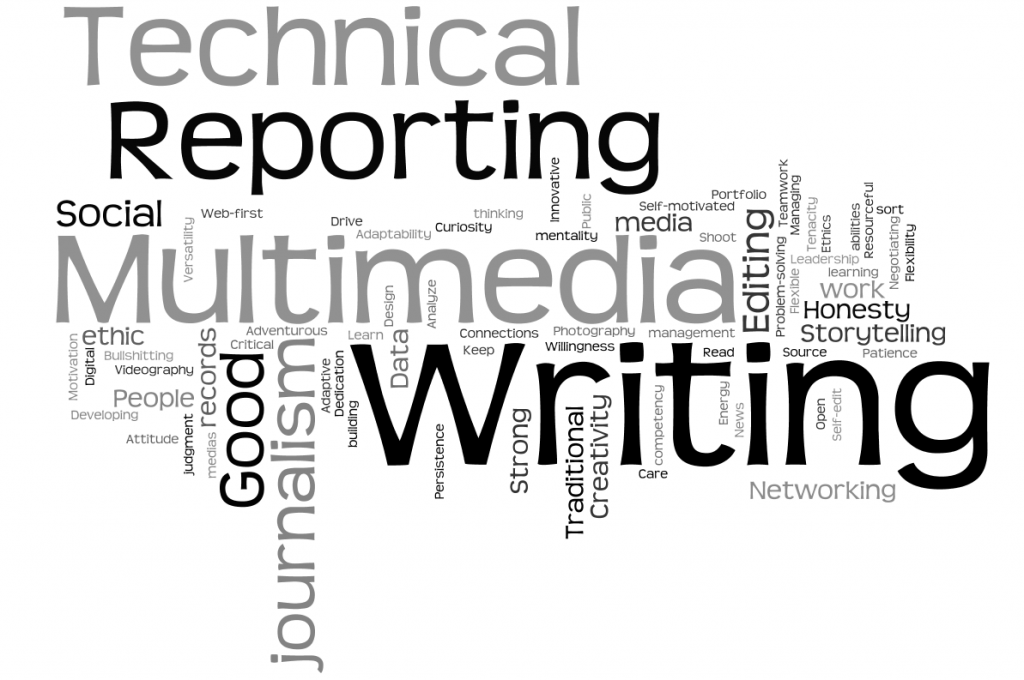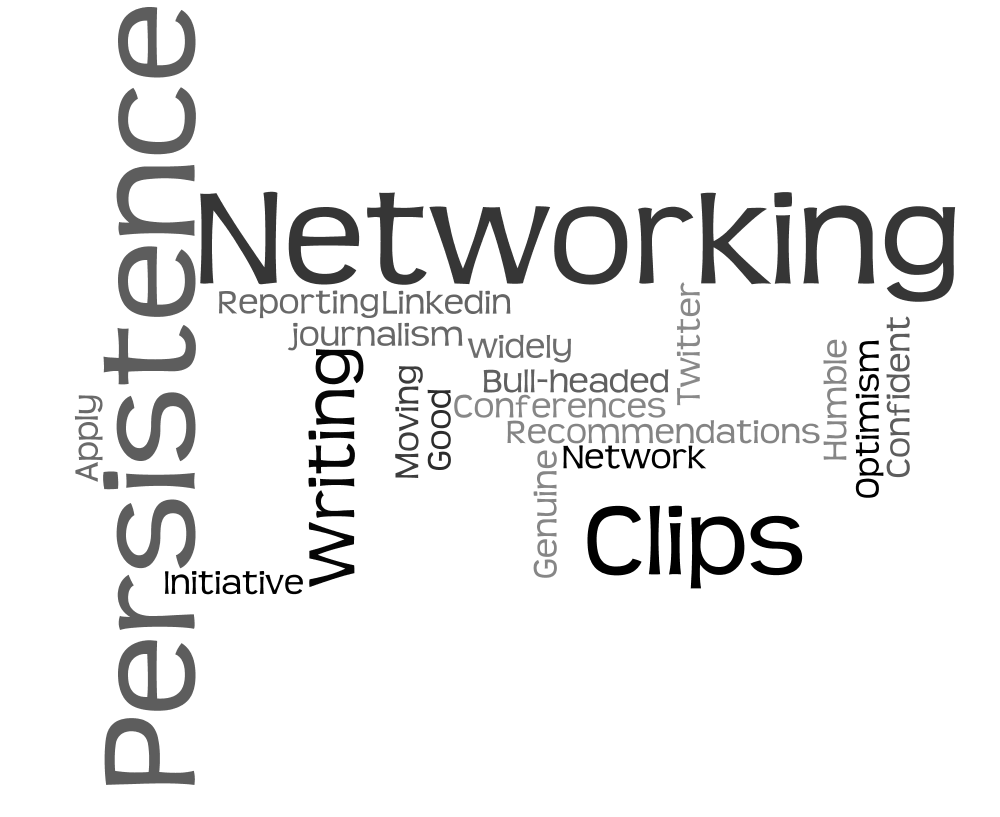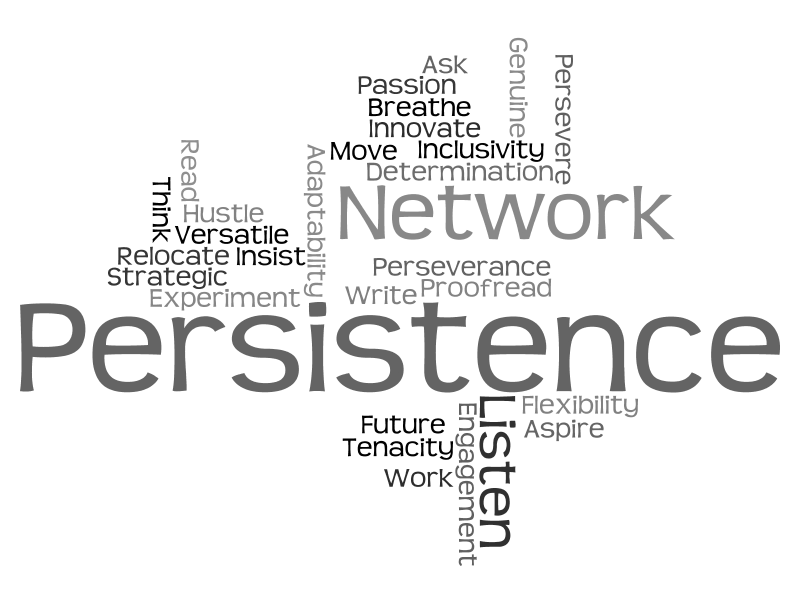For most of us, there is no doubt that social media has lead to significant shifts in our culture, including journalism. For this week’s post, I spoke with Senior Producer Andrew Fitzgerald and Co-Host/Digital Producer Ahmed Shihab-Eldin, two of the journalists behind a new social media-driven show on Al Jazeera English.
NOTE: Based in D.C., they both met me on a collaborative document, each on their own computer. You can playback the unedited conversation here.
 Ahmed and Andrew, thank you both for taking the time to chat with me about your newest project. In fact, first let me congratulate you on the launch of The Stream, which officially aired Monday (5/2/11). For folks that have not yet heard of the show, please take a moment to describe the project.
Ahmed and Andrew, thank you both for taking the time to chat with me about your newest project. In fact, first let me congratulate you on the launch of The Stream, which officially aired Monday (5/2/11). For folks that have not yet heard of the show, please take a moment to describe the project.
Fitzgerald: Thanks so much for inviting us to chat about it! So The Stream is a television show and online community on Al Jazeera English. We’re telling stories from around the world that are driven by and often about social media. The site compiles information from around the globe by working with our audience and then the television show is the place where we talk about those stories, bring in people (via Skype) who are involved in them, and also allow our audience a chance to be part of the discussion.
Shihab-Eldin: Thanks, we are joking here because I always feel a need to add something – and in this case just wanted to emphasize that this was conceptualized well before the Tunisian Uprising and as it has evolved, we have realized we were right to rely to a large extent on our community/audience, both online, and on TV, and across the world to inform our editorial approach.
That was one of my next questions… can you talk about how the show came about? Was this before or after the recent uprisings… obviously before. How did this interesting TV show happen? And how did you get involved?
Shihab-Eldin: The show is a product of the reality the media industry is facing, and governments for that matter, which is that conversations are happening online, across borders, across social classes, and across communities. And as we saw in the Arab world, they are powerful and have the potential to mobilize, unite and challenge – not only governments – but the collective Arab psyche and how they see their identity.
I got involved in the project because I used to work in Doha at Al Jazeera English and have a background in New Media. When I graduated from Columbia University, the mainstream media had yet to witness or recognize the true power of these tools. Since then, I’ve worked in Doha with Al Jazeera as an online journalist, but then also at the Doha Film Institute and helped launch the online and social media efforts of the organization. There I worked with a man named Stephen Phelps who was brought in to essentially take the concept of The Stream and implement it. I’ve always championed the potential power of social networking for media innovation, for the development and progress in the Arab world, and so, perhaps it was a natural fit!
Fitzgerald: My background is in participatory journalism; my last big project was working at Current TV in San Francisco where, among other things, I managed the citizen journalism program. I had my “Al Jazeera” moment like everyone else in the US on January 25, when I tuned into CNN to see what was happening on the streets of Egypt and saw a segment on Charlie Sheen. Twitter set me straight: “Go live stream Al Jazeera!”
I’d heard Al Jazeera was developing a new social media-driven show and, especially after the Egypt coverage, was very eager to see if there might be a way for me to help out. Lucky for me (also in a conversation with Stephen Phelps) it was a good time for me to come in and lend my expertise. My hope, really, is that this show is and continues to be a real leader in how to produce truly interactive television journalism, and I’m trying to bring all the best lessons I’ve learned to bear in that aim.
What is the goal/vision for the show? Both in journalism, in the Arab community and for Al Jazeera network?
Shihab-Eldin: The general idea is to give voice to the voiceless – specifically those who live in countries where civic engagement is not tolerated, but suppressed – and give them a voice. We do not want to reinvent the wheel. While we want to build a community (both online and through TV and eventually merge the two), in order to do that, we must tap into communities that already exist where conversations are already taking place. We also are hoping to pass on the airwaves to a new generation. Fifty percent of the world is under 30. Almost 70 percent of the Arab world is under 30. We deserve our moment – and the converged platform of The Stream is just one part of it.
We do not want to appear to be telling audiences or the community what is worth discussing, we want to invite and engage people who already have a nuanced understanding of their particular corner of the world (or community) and allow them to drive the narrative. Often times they are far more knowledgable on the “real issues” so to speak, than the mainstream media or than they get credit for.
Having this show launching on AJE, rather than CNN, means something, no? How does the network effect the show… or empower it? Or is the network not a factor? Could this show work on another network? What would the differences be?
Fitzgerald: The network is absolutely a factor – in the sense that Ahmed mentioned above: this idea of “the voice of the voiceless.” What makes this a show on Al Jazeera English and not a show on another network is our aim to find the voices that aren’t being heard. It’s a truly global show for a truly global network. We work hard to find stories that really reflect that. Keep in mind – Al Jazeera English has a much, much bigger audience in, say, sub-Saharan Africa than the US. That’s one big difference between this show on this network versus, say, CNN.
Another difference is that the show has the space to be serious. We’re covering important topics and taking the time to air them out. If this was a show (like many similar shows that have attempted in the recent past or will be in the near future) on a US-based network, it would struggle to not treat social media as ‘funny cat videos’.
Shihab-Eldin: Hillary Clinton answered your question when she pointed out that “You might not agree with it, but you feel like you’re getting real news around the clock instead of a million commercials and, you know, arguments between talking heads….which is not particularly informative to us, let alone foreigners.” Al Jazeera gives you global news in real time.
What Al Jazeera also seems to be doing is experimenting and embracing technology, including social media. Why is it that your network “gets it” while other news outlets struggle to genuinely embrace Web and tech culture? What’s the secret?! Or am I, and others, projecting?
Fitzgerald: Haha, no secret I’ve seen since I’ve come on board. I think it might partially be a little projection (which I too am guilty of) because Al Jazeera is doing what feels like serious, high-quality journalism. In terms of techniques, I don’t know that the network has any big secrets that no one else has up their sleeve.
I will say, about The Stream in particular, what makes this show different is that it feels like the experience of being on the web. There is no giant touch-wall, we don’t have crazy animations. We are individuals who use the web like anyone else and the show is a reflection of that experience. It’s more true-to-life, I think that’s something that has been lacking in television news treatments of social media.
Shihab-Eldin: I would say it is difficult to “get” something that is constantly evolving, so to even claim that we “get” social media in its entirety may be a stretch. But I think The Stream is simply applying the same editorial judgements that Al Jazeera uses which is not to focus on being “flashy” or “objective” – which I think the US mainstream media is so focused on. I don’t know what “objectivity” is really. It seems contrived to me. We focus on the story and how we understand it given our perspective and facts and the context we can provide. Al Jazeera’s New Media team has always been looking for ways in which to use technology and social media to achieve a function rather than a form. It isn’t about the polish but about the product and why you are using this medium and what the real power of these tools are with regards to producing, sharing, or highlighting important information, quickly.
I’ve crowdsourced a couple questions, which I’ll sprinkle throughout… @NSlayton asks about your editorial selection: What editorial outlook goes into picking stories? It there newsworthiness vs. popularity of a story?
Fitzgerald: Great question. It is, like most editorial decisions, an ever-changing mix of all that and much more. We’re not covering day-of news as much (the network has an excellent News department that covers day-of incredibly well) so newsworthiness is a looser definition as we use it. It’s a mix of if this story resonates (or will resonate) within social media, if it’s a story that hasn’t been particularly well-covered and if it hews to the network’s greater editorial strategy mentioned above.
Shihab-Eldin: Andrew is right. We rely on what people are talking about, but more importantly what they are saying. Popularity, to me, is pretty insignificant, because chances are if something is popular it is popular because it is relevant or “newsworthy” – otherwise we wouldn’t cover it. This fits within Al Jazeera’s aim of offering a different perspective and balancing the news climate with stories from the global south.
Okay, you’re going to have to excuse me… but haters gonna hate… and there are plenty of haters for social media, participatory journalism, citizen journalism. How do you respond to those “traditional” journalists that think this is undermining journalism… or Journalism? Or has the recent uprising changed the conversation, proving the value?
Shihab-Eldin: Yes, there are lots of haters. A black man being elected president is a big change – and a lot of people hated that. But it was natural progress in the context of America’s history and maturity and although it can be uncomfortable, to hate what is organically changing is not particularly constructive.
On the issue of “traditional” journalists thinking this undermine’s journalism, they will come around. I’m 26. I’ve been lucky to grow up using these tools and so inherently understood their power. I graduated from Columbia University in 2007 when the New Media/Digital program was essentially the joke of the school and the smallest program. I then got hired at PBS and The New York Times largely due to my new media savvy, when some colleagues in Print or Broadcast were struggling to find jobs. I met some “haters” there but usually people hate when they don’t understand something. For those who are still not convinced, I would ask them what is journalism? I doubt we have the same definition. Mine tends to be broad and inclusive, if that makes sense.
Fitzgerald: I’ve done a lot of thinking about this over the last few years. I mean I started working on citizen journalism when people (business people, largely) really thought it would be a replacement for traditional journalism. I think the lesson we’ve learned in the last few years, and are continuing to learn as we go, is that citizen journalism/social media/participatory journalism – all of these are tools for journalists to add to their toolkits.
How did you two get into social media… were you early adopters? What was your “ah ha” moment that made you realize this was not a gimmick, but a powerful shift in how we could practice journalism?
Shihab-Eldin: I’ve always been into social media. I was using ICQ before I hit puberty to connect with friends around the world while living in Egypt. There is so much that the social media community can learn from the journalism community and vice versa, although now, thankfully the lines are blurred, and it is all part of one larger community, which in essence is part of what The Stream is trying to accomplish.
Fitzgerald: Haha I have a very simple answer to this question: I live in San Francisco. It’s unavoidable!
Ha! I went to university in The City and know what you mean. But I was, admittedly, also a tech nerd/geek.
Fitzgerald: As to the second part of the question – I had a long series of a ha! moments at Current TV because we did so many experiments in the intersection of social media and journalism. I decided to work in citizen journalism after we pulled in a video from a Louisiana resident who, immediately after Katrina, shot a video of himself going into New Orleans in a flat-bottomed boat. And of course, Current Hacks the Debate – which was (I’m pretty sure) the first-ever live TV Twitter integration (the brainchild of Chloe Sladden (among a few others), who is now at Twitter).
Shihab-Eldin: I was born in Berkeley, so maybe it has always been in my blood ;)
Nice… so here is another crowdsourced question. This one is from @Bradleybowman who asked two questions: Whats the biz model given no commercials? Who embraced or thought up concept?
Fitzgerald: I don’t know that either of us are particularly well-suited to discuss the greater business model question for the network at large – but yes, no commercials and no web ads.
Shihab-Eldin: Andrew is right, however what I can say is that we are funded by the State of Qatar and the government values what Al Jazeera is accomplishing so much that it is one of the nation’s primary objectives to fund the network as part of a larger mission of developing Qatar and the Arab world. The Emir speaks on this often.
As we talk/type, you have just completed episode 2 — not counting the test shows leading up to Monday’s launch — and, granted, it’s still early… but what has the reaction been so far? Any surprises along the way in launching?
Fitzgerald: We’ve been really pleased with the reaction so far! A couple of great reviews out there in the blogosphere on our pilot weeks. People seem to be responding to the authenticity of the way the show deals with the Web. That’s been nice to see – affirming our suspicions on that front. (We’re trying to think of any funny anecdotes for you).
Shihab-Eldin: I will admit something (fully acknowledging that there are haters out there). What was surprising to me was in fact the general reactions I’ve received so far, not just in the media, but by friends and colleagues who are extremely critical and skeptical of the ability to truly converge the web and social media with television. There has been a resounding sense that we are on to something truly innovative and I think in a few months, the show will look quite different than it does right now – that is both the most exciting part and the most frightening. Even my mom loves it. That may have been the biggest surprise as she usually dismisses these “technological tools” as “a waste of time”.
Ha! Final question, one that I like to ask journalists I get the privilege to interview… With these “tough” and “challenging” times, what keeps you going? Why are you a journalist?
Fitzgerald: It’s an important time to be telling stories. That’s what I believe. Our world is changing at a pace that’s arguably unprecedented. For me, for us, our field is also changing at an unprecedented pace. The way we tell stories continues to shift and grow. I find that really exciting. What we’re doing today could be entirely different from what we’re doing in five years. In two years, even. (Two months…hah!) As tough and challenging as these times may be, I think it’s a really exciting time to be a journalist.
Shihab-Eldin: I must be a journalist because when my family and I found ourselves in refuge in Berkeley, California during the first gulf war – unable to return to Kuwait – a local TV station came to our house to do a story about us and asked me all about my family back in Kuwait (I was 7 at the time) and asked after my grandmother in particular. I remember being fascinated and intrigued by her interest. Why did she care? Did she care? I think that is what it all comes down to – connecting with either the plight or the accomplishments or the challenges of other humans around the world – that may sound cheesy – but it is what makes me tick.
Well gentlemen, thank you again for taking the time to chat with me… and much success to the new project.






 Ahmed and Andrew, thank you both for taking the time to chat with me about your newest project. In fact, first let me congratulate you on the launch of
Ahmed and Andrew, thank you both for taking the time to chat with me about your newest project. In fact, first let me congratulate you on the launch of